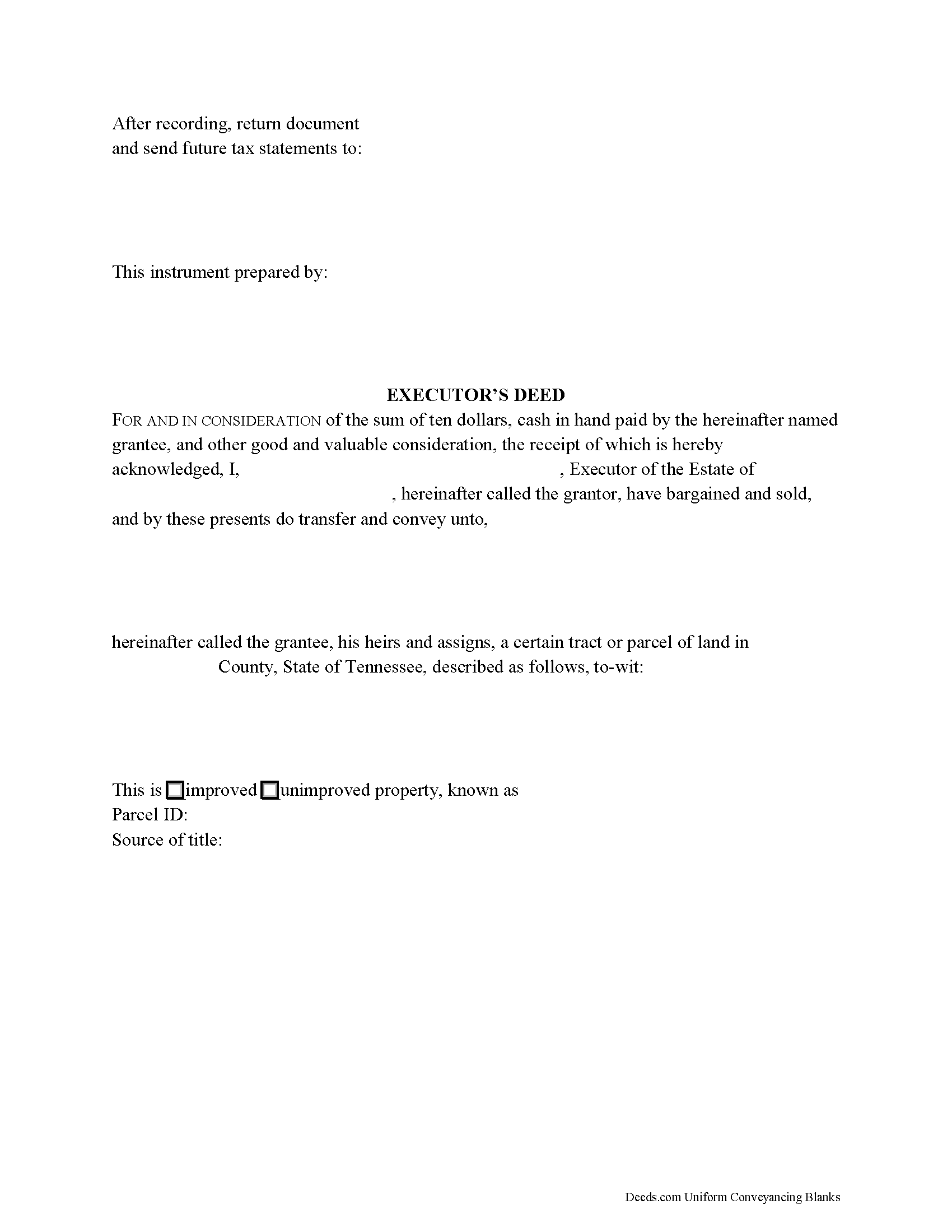Download Tennessee Executor Deed Legal Forms

Tennessee Executor Deed Overview

Use an executor's deed to transfer title to a decedent's real property to a purchaser following a sale. An executor's deed names the duly authorized and acting executor of the estate of the deceased as the granting party. This is the person to whom the probate court has issued letters testamentary.
Typically, executors' deeds contain fiduciary covenants akin to those found in a special warranty deed, and the deed may even be indexed as a special warranty deed in the county land records. The warranty of title in a special (limited) warranty deed only covers the period that the grantor held title to the property, along with covenants that the grantor is lawfully seized and possessed of the property in fee simple and has a good right to convey it, and that the property is unencumbered, unless noted on the face of the deed.
A sale of realty from the decedent's estate may be required when the decedent's personal property is insufficient to pay the estate's debts. A petition of the court for a decree of sale is required before an executor can make a sale (T.C.A. 30-2-402). The court may order a sale if there is sufficient evidence, upon hearing, that the land should be sold.
Fiduciary deeds follow the same formalities as any deed affecting title to real property, which include a legal description of the subject parcel, the parcel and map numbers assigned by the taxing authority, and a recitation of the grantor's source of title. In addition, the deed notes whether the subject parcel is improved or unimproved property. Any restrictions on the property should be noted on the face of the deed.
Instruments in Tennessee also require an oath of value (T.C.A. 67-4-409(a)). On any type of warranty deed, the oath reflects the consideration made for the transfer or what was given for the transfer, or the value of the property, whichever is greater. This oath is made and signed by the grantee or the grantee's buyer or agent, typically at the time of recording, as directed by the document's preparer. Conveyance tax is levied based on the amount reflected in the oath of consideration and is due upon recording.
Record deeds and instruments relating to real property in the Register of Deeds' office of the county where the subject land is situated. Instruments affecting interests in real property must meet state and county requirements for form and content, and should reflect the preparer's name and address, the property tax address, and signature of the granting party, made in the presence of a notary public. Include any requisite documentation with the deed, which may include a certificate of probate, certified copies of a will, and/or related probate orders.
The information provided here is not a substitute for legal advice and does not address specific probate situations. Consult an attorney licensed in the State of Tennessee with questions regarding executors' deeds and probate procedures in that state, as each situation is unique.
(Tennessee Executor Deed Package includes form, guidelines, and completed example)